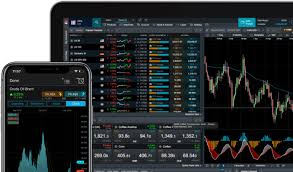Contracts for Difference, or CFDs, are an innovative tool for traders that allow them to bet on the upward or downward movement of financial markets. CFD trading has grown in popularity over the last few years, and many platforms have emerged to help traders take advantage of this opportunity. However, with so many options available, it can be difficult for new traders to find the best CFD trading platform for their needs. In this guide, we’ll provide an overview of the most reputable CFD trading platforms available, and share some tips for finding the right one for you.
Look for Regulation
When evaluating a CFD trading platform, the first thing you should check is whether or not the platform is regulated. A regulated platform typically features stricter security protocols and account verification processes than an unregulated platform, which can help to protect your investment.
Evaluate the Platform’s Ease of Use
Another key consideration when choosing a CFD trading platform is the platform’s ease of use. The platform should have an intuitive interface that makes it easy to navigate and place trades. Ideally, the platform should also offer a range of tools and features that allow you to analyze and monitor the markets, as well as an array of educational resources to help you improve your trading skills.
Research the Platform’s Commission and Fees
Commission and fees can vary significantly between CFD trading platforms, so it’s essential to research these details before choosing a platform. Some platforms charge a percentage of your trade, while others may charge a flat fee. Some platforms may also charge inactivity fees if you don’t trade for an extended period of time. Understanding the platform’s commission and fees can help you to make a more informed decision and avoid surprises down the line.
Consider the Range of Assets
The variety of assets offered by a platform is also an important factor to consider. A high-quality platform should offer a wide range of assets, including stocks, commodities, indices, and cryptocurrencies. The more assets offered, the more opportunities there are to make profitable trades.
Evaluate Customer Support
Finally, it’s always a good idea to evaluate a platform’s customer support options. A quality platform should have a responsive and helpful customer support team available to assist you with any questions or concerns. Check to see if the platform offers support over the phone, via chat or email, and during what hours.
Conclusion:
In summary, selecting a cfd trading platform requires you to evaluate a range of factors, including regulation, ease of use, fees, assets, and customer support. By doing your research and considering these factors carefully, you can select a platform that suits your individual requirements and enables you to make informed trades with confidence. Remember, investing in CFDs is inherently risky, so always approach trading with a cautious and strategic mindset.


